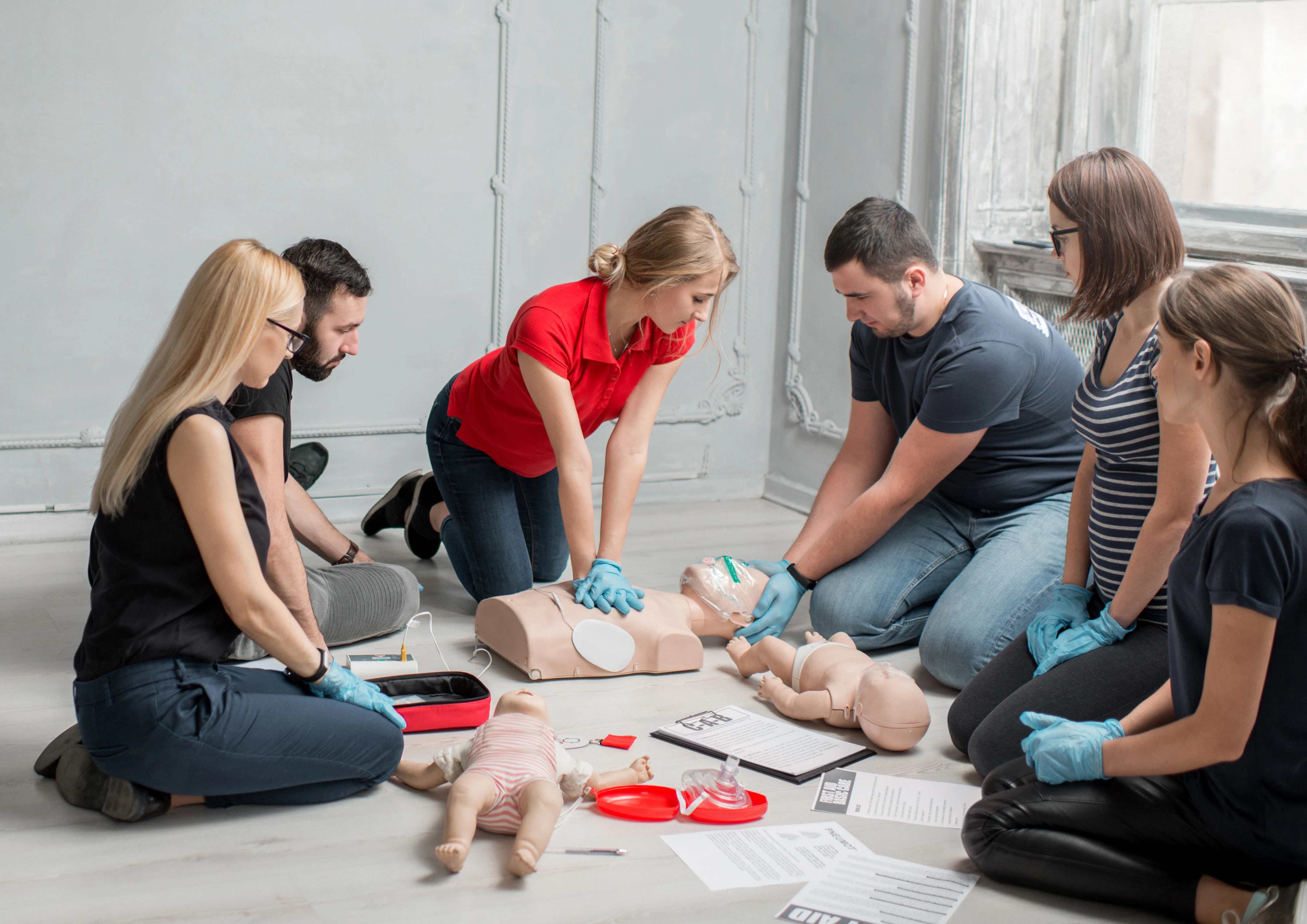Introduction
In our fast-paced world, emergency situations can strike without caution. Whether it's a small injury, a clinical emergency, or a deadly scenario, recognizing how to supply emergency treatment can make all the difference. This is where a First Aid course enters into play. Many individuals may wonder what they can get from such training, and this short article intends to clarify that.
By joining in a First Aid and mouth-to-mouth resuscitation course, you don't just learn more about wrapping injuries or executing mouth-to-mouth resuscitation; you equip yourself with indispensable skills that can save lives. So, exactly what will you discover in a thorough training course? Allow's study the details.
First Aid Fundamentals: What You'll Learn in a Comprehensive Course
Understanding Initial Aid
What is Very first Aid?
First help refers to the preliminary help offered to someone suffering from an injury or disease up until professional medical help arrives. It encompasses different techniques and skills varying from basic wound like lifesaving techniques like CPR (Cardiopulmonary Resuscitation).
Importance of Emergency treatment Training
Why Needs to You Take a First Aid Course?
Taking a First Help course is necessary for numerous factors:
- Confidence: Knowing exactly how to respond in emergencies can infuse confidence. Life-Saving Skills: The capability to execute CPR or help with choking can conserve lives. Career Innovation: Several careers call for certification in very first aid. Community Responsibility: Being trained methods you can assist others effectively.
Overview of CPR
What is CPR?
CPR, or Cardiopulmonary Resuscitation, is an emergency situation treatment done when a person's heartbeat or breathing has stopped. It incorporates upper body compressions with rescue breaths to preserve blood flow and oxygenation till specialist help arrives.

The Structure of a Comprehensive First Aid Course
What Does a First Aid Course Include?
An all-round First Aid and CPR course commonly covers the complying with topics:
Introduction to First Aid Legal and Honest Considerations Scene Safety Basic Life Support (BLS) CPR Techniques Choking Relief Wound Care Management Burn Treatment Managing Shock Recognizing Clinical Emergencies Using an Automated External Defibrillator (AED)Legal Facets of First Aid
Are There Legal Effects Involved in Giving First Aid?
Yes, offering emergency treatment does lug lawful obligations called "Good Samaritan laws." These laws safeguard people that help others in emergencies, gave their activities are affordable and not reckless.
Scene Security: The First Step
How Do You Ensure Scene Safety?
Ensuring scene safety includes analyzing the setting prior to coming close to the victim:
- Look for potential risks (website traffic, fire). Make certain it's risk-free for both you and the victim.
Basic Life Assistance (BLS)
What Role Does BLS Play in Emergency Situation Situations?
Basic Life Assistance includes the principles of maintaining life features up until more medical help arrives. This area covers vital skills such as:

- Checking responsiveness Activating emergency situation solutions Performing top quality breast compressions
Advanced CPR Techniques
What Are Advanced Techniques Covered in Mouth-to-mouth Resuscitation Courses?
Advanced strategies may consist of:
- Two-rescuer CPR Use of obstacle devices for rescue breaths Special considerations for babies and children
Choking Alleviation Techniques
How Do You Assist Somebody Who is Choking?
Choking relief includes two important techniques:
The Heimlich maneuver for adults. Back impacts and breast drives for infants.Wound Treatment Management
How Do You Appropriately Manage Wounds?
Effective injury administration includes:
- Cleaning the wound with saline or tidy water. Applying antibiotic ointment. Covering it with sterile dressings.
Burn Treatment
What Are Effective Approaches for Treating Burns?
Burn treatment varies by level:
Cool the melt under running water. Cover it with non-stick dressings. Seek clinical attention for serious cases.Managing Shock
How Is Shock Identified and Treated?
Recognizing shock consists of searching for signs like pale skin, fast pulse, or confusion:
Lay the person down. Elevate their legs unless there are injuries stopping this. Keep them relax until aid arrives.Recognizing Medical Emergencies
What Kinds of Medical Emergencies Ought To You Understand Of?
Common medical emergency situations include:
- Heart assaults Stroke Severe allergies Recognizing these problems helps you act quickly.
Using an Automated External Defibrillator (AED)
How Do You Make use of an AED Correctly?
Using an AED entails turning it on, connecting pads according to images on the tool, and adhering to voice triggers carefully.
Importance of Continual Learning
Why Is Constant Understanding Important in Emergency Treatment Training?

Continuous understanding guarantees you stay upgraded on best practices and brand-new procedures in emergency treatment care.
FAQs About First Aid Courses
What Is Consisted of in a Standard First Aid Course?- A standard program typically covers standard life assistance, wound management, choking alleviation methods, and lawful considerations.
- Most training courses vary from 6 hours to 16 hours depending upon the depth of web content covered.
- Yes, upon effective completion of many training courses, individuals receive a first help certificate, which is usually legitimate for two years.
- Yes! Lots of companies supply on the internet courses that offer versatile knowing atmospheres while still being effective.
- Absolutely! Hands-on technique is vital for mastering skills like chest compressions and utilizing AEDs effectively.
- Generally, there are no age restrictions; nevertheless, individuals have to be psychologically proficient to discover these life-saving skills effectively.
Conclusion
Enrolling in a comprehensive emergency treatment course outfits individuals with crucial expertise that can conserve lives throughout emergencies-- whether Hobart emergency training courses in the house, work, or out in public areas! From recognizing fundamental life assistance procedures like mouth-to-mouth resuscitation to finding out exactly how to handle wounds properly or identify indicators of shock-- these courses supply very useful training that anyone can benefit from!
As we browse with our day-to-days live filled with changability-- what far better means than preparing ourselves through knowledge gained from organized training sessions concentrated on saving lives?
In final thought-- if you're contemplating occupying any kind of first-aid training-- never ever hesitate! Equip on your own today with these effective tools because preparedness absolutely makes all the distinction when every 2nd counts!